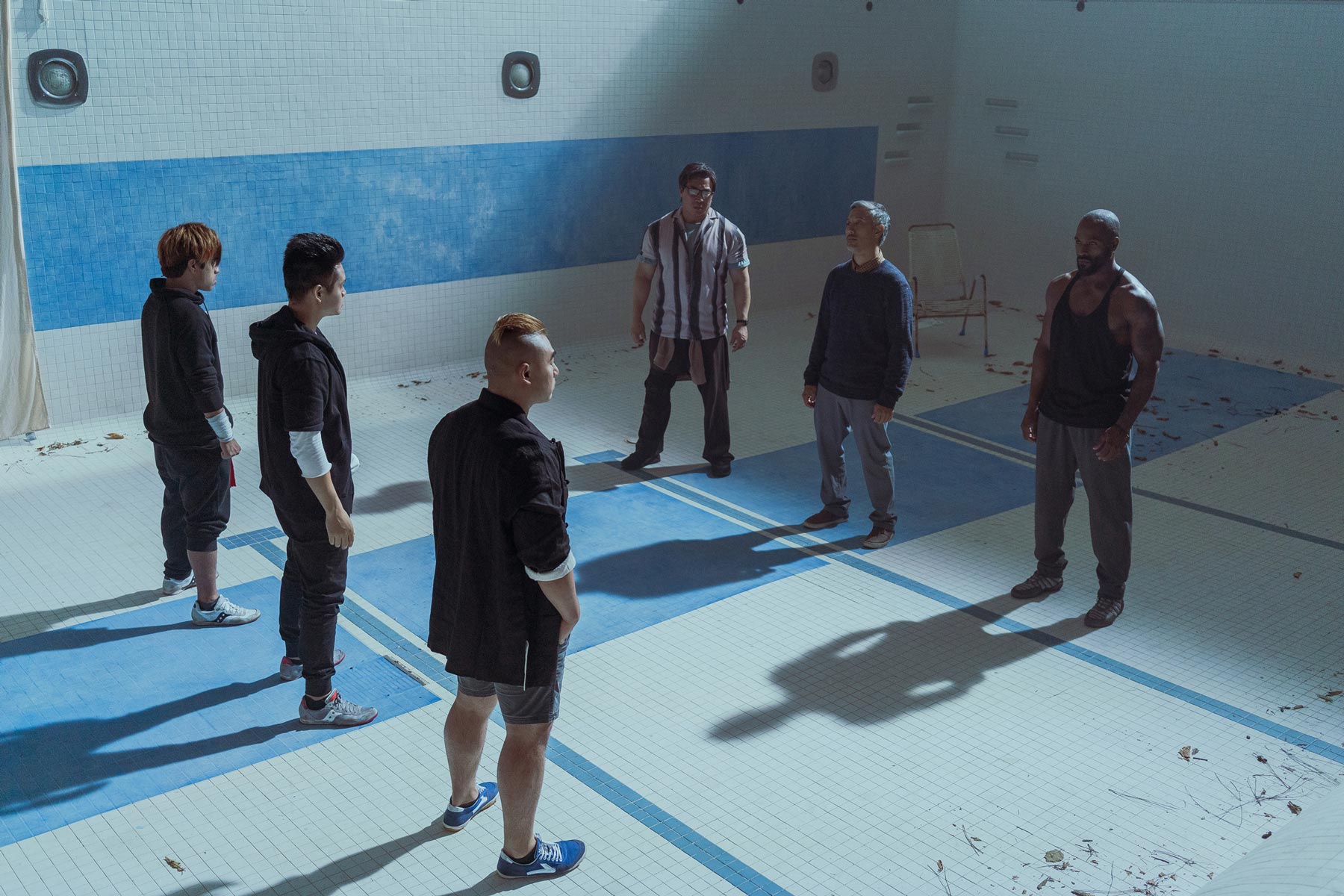The 13th Annual Philadelphia Asian American Film Festival opens with a martial arts comedy for the underdogs, The Paper Tigers. In The Paper Tigers, three teenagers endure brutal Kung Fu training under their master’s constant watch. Building up a fearsome reputation of invincibility, they are known as “The Three Tigers.” Life gets in the way, and after growing apart for twenty years, the former classmates are reunited when their master is mysteriously killed.
Director Bao Tran joins PAAFF to talk about his first feature’s Seattle roots, what it means for the film to be seen in 2020, and more.
As someone whose work has focused on action films, what led you to present a martial arts film through comedy?
Bao Tran: I wanted to have a fun story that reflected the values I had growing up in martial arts. And then explore the experience of falling out of love with it and whether it has any real truth for our lives anymore.
Your film is described as a homage to Bruce Lee and the Seattle martial arts scene. For viewers who are unfamiliar with Seattle’s scene, could you tell us more about how the city’s martial arts are reflected in the film?
Bao Tran: There’s quite a bit of historical connection. Depending on who you ask, Bruce Lee had to flee Hong Kong because of his involvement in rooftop beimo fights as a teenager. He landed first in Seattle and set down his roots here. His first group of students were incredibly racially diverse, and he really didn’t catch flack for it until he moved to California. So Seattle has this long history of deep martial arts talent and open-mindedness, and the Tigers and their relationship with their master reflect that.
The three tigers consist of one Black and two Asian American characters. Throughout the film, we witness the racism the characters face in their everyday lives. Tell me about the writing process for delivering these conversations through action-comedy.
Bao Tran: The Tigers have to deal with appropriations of all kinds, whether it’s with their rival masters and the younger generation. I wanted to situate the audience with the Tigers so you can be part of their journey in dealing with all the strangeness of all these people. The real-life martial arts world can be quite an assortment of characters!
Carter is an intriguing character because he represents some of the Western attitudes that Asian cultures have to deal with. His co-opting of Chinese culture is direct and recognizable to all audiences. How did you come up with the idea for this character and the presentation of his ignorance through comedy?
Bao Tran: If you’ve done martial arts here in the US you’ve definitely encountered the type. It’s a very recognizable personality. You take on that which you love, with varying results of course. In a lot of ways and in this day and age, a lot of martial arts have been passed on to other countries and cultures that are not Chinese. Carter also presents how far the Tigers have fallen short of the ideal and challenges them to be better.
Have this year’s injustices towards Black lives and the rise in anti-Asian sentiment influenced your film’s reception and distribution? What does it mean for this film to come out at this moment?
Bao Tran: Our country is going through a painful, but much needed reckoning. If anything, our hope is to provide some respite and levity through it all. For those who understand the issues at play, we hope they can enjoy and smile and be energized by it. For those who don’t understand yet what is at stake, hopefully they see POC in our film in a different light than what they’ve ever seen or known before and there will be an aha moment of recognition and empathy.
Tell me about the challenges you faced while directing your film.
Bao Tran: For our little independent film, raising money was the hardest part. Getting enough supporters to believe in our film and support it either through our Kickstarter or private funding. Once we were on set, the actual filmmaking and production were challenging of course, but it was a kind of difficult that we’re used to and, strangely enough, even relish.
What do you hope the audience will take away from The Paper Tigers?
Bao Tran: We’d want the audience first and foremost to have an enjoyable time; goodness knows that these days we all need a smile. But also I hope we can learn to appreciate those who paved the way for us to be where we are today. Yes, this movie is a love letter to Kung Fu movies but it is also a love letter to our teachers, be it a Kung Fu master or a mentor or a parent who pointed the way.
What do you think it will take for marginalized communities to have agency over their stories? Tell me about your hopes or vision for Asian American films in the mainstream.
Bao Tran: Homegrown stories don’t come out of nowhere. I hope as we continue to tell our stories authentically from our own viewpoint, the greater API community will support our artists even more. Not just in ticket buying but also with funding and investing and sharing the message.
What stories do you want to tell next? Where do you see yourself going forward?
Bao Tran: I have a lot of more ideas that I can’t wait to get out there, but there’s a lot in the air with film production and safety. So once all that is handled safely and a clear path forward, we can get to work!
The Paper Tigers will screen LIVE on November 5th at 7:00PM EST and will be followed by a live Q&A with the cast and crew. You can purchase tickets to the film here.

